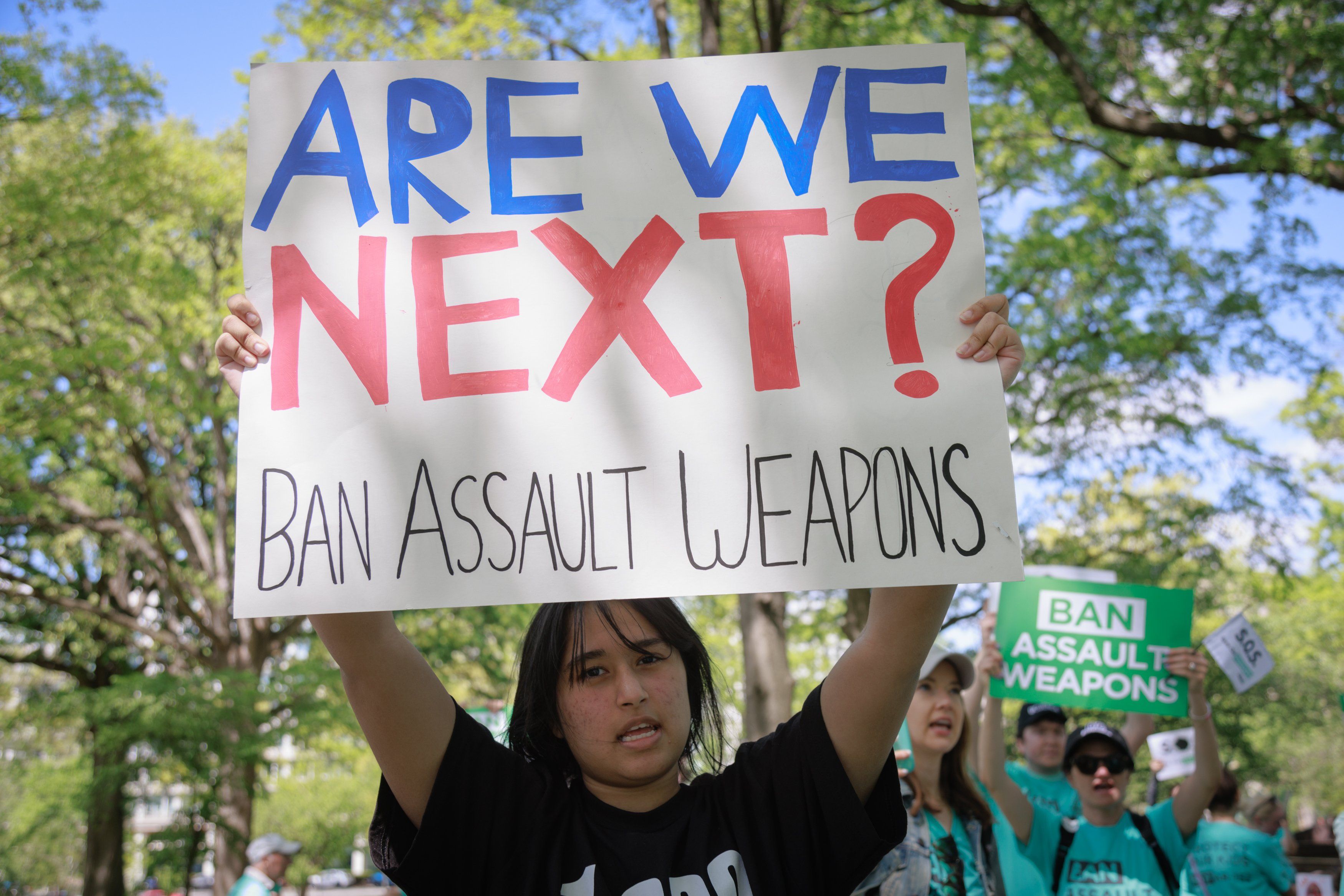Hard Numbers: Mexico takes on US gunmakers, NATO shells out to Ukraine, Putin critic enters Russia’s presidential race, EU sanctions firms linked to Sudan violence
January 23, 2024
Anti-gun protestor.
Photo by Bryan Olin Dozier/NurPhoto
10 billion: A US appeals court ruled Monday that a long-running $10 billion lawsuit filed by Mexico against US gun manufacturers can go forward. Mexican authorities say that tens of thousands of US-made guns smuggled across the border each year are helping arm drug cartels to the teeth.
1.2 billion: On Tuesday, NATO announced a deal worth $1.2 billion to buy artillery shells for Ukraine. It’s not clear how much the new ammo will really narrow the margin in a war in which, according to EU estimates, Ukraine has been able to fire just one-third the number of artillery shells that Russia continues to launch into Ukraine.
100,000: Russian politician Boris Nadezhdin, who demands an end to Moscow's invasion of Ukraine, got the 100,000 signatures needed to register as a candidate to take on Vladimir Putin in Russia’s March 17 presidential election. Will he be allowed to run? Will he be allowed to speak?
6: The European Council has imposed sanctions on six companies accused of financing and arming the warring Sudanese army and the paramilitary Rapid Support Forces. The US issued similar sanctions last June.